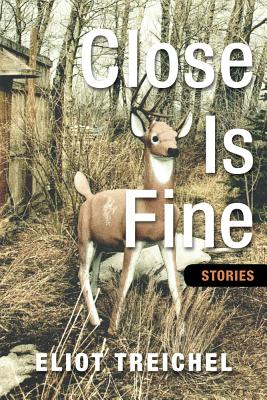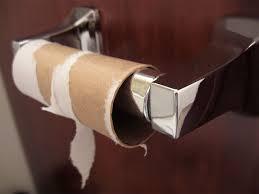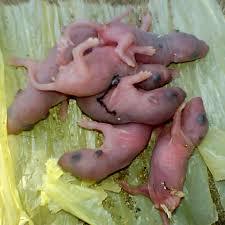Close is Fine, Stories by Eliot Treichel (2012, Ooligan Press)
Eliot Treichel knows the interior landscape of a certain American male. With this debut collection, he earns a place next to writers like Rick Bass, Mark Richard, Brady Udall and Sherman Alexie.
"She likes to watch cartoons..." is the extent of the instructions that arrive with Michelle, a little girl dropped off at her father's dilapidated house. "It's your turn for a while," the note concludes. Michelle's father, recently carted off to jail for a failed drug test, has two housemates, and it is these two young men who end up caring for the girl, the same two who, in the story's opening scene, get their jollies by destroying breakables in an abandoned barn.
"... [We] broke stuff. We sought out every scrap of glass just so we could hear it shatter."
Clearly, the little girl is the most mature member of the household in Treichel's opening story, "Good Potato Soil."
"We had an old washer and dryer so Dude and I and Michelle had mostly clean clothes, though we stored them in piles on the floor. In the bathroom, the shower drain was green as moss in the river. We were always out of toilet paper. Utility bills waited past due, and the mutt got low on chow."
In the next story, Treichel again explores an absence of nurturing, when 9-year-old Mary attempts to save some baby mice from the mouth of her dog, Jiggs. She hides the two surviving babies in a hay bale in the barn, but her father discovers her stash. He's stern when explaining to Mary that mice in a barn multiply; reminds her that the whole reason they have cats is to keep mice out of the barn. Softening when he sees his girl's sadness, he says, "Besides, a mouse needs its mother. Someone to keep it warm, to nurse it, to teach it how to be a mouse." He says, We're not that. The line, like so many of Treichel's, packs a wallop. Motherless herself, Mary has no one to teach her how to be a girl. "We're Not That" is filled with hard lessons, but Treichel resists simplification of those lessons into good and evil, or the blameless and the blamed. The ending of this very short story will break your heart.
But Treichel also makes us laugh. The collection is filled with life-affirming humor. In "Papermaker Pride" an inferior high school soccer team is relegated to the middle school field, "because the football coach didn't want us to tear up his turf." In a school that "reeked of athleticism," the soccer team was invisible, ignored. "[We] got no pep rallies, no cheerleaders, no band. Many in the student body didn't even know Kemper had a soccer team." Entering the season with a dismal record of two and nineteen, the only player capable of making a goal is the new foreign exchange student, Gus, whom the narrator refers to as "our Swedish surprise".
"Gus had scored Kemper's first goal in almost a year, and though we were already down five points when it happened, we nearly got a delay of game for how long we celebrated. 'We're totally going to get you laid tonight,' Raymaker said. We totally had no way of doing that."
Later that evening, the boys unleash helium balloons from the antennae of cars at a used car lot, and watch the balloons rise. "...if you kept focused on them, it almost felt as if you too were lifting away. As if luck came as easily as boredom." Gorgeous lines like these distinguish Treichel's fiction.
Orphans, abandonment, betrayal, small and large scale losses fill these pages. Lost buildings, lost lumberjacks, a lost soccer game with a humiliating score of twenty to zero, infidelity and marriages on their way out the door. A woman whose husband is going off to cheat on her, gets up early to make him a thermos of hot chocolate for the drive. A momma bear is dead and rotting on the side of the highway, her abandoned cub crying out, "...plaintive and mule-like..." for days. A philandering husband sleeps with the wife of a guy serving in Iraq. The philanderer's friend, not privy to the affair, has used the word treason for men who would have sex with the wife of a soldier. Before the story is over, the philanderer has brought upon himself bodily harm, not unlike the kind you might get from a tour in Iraq.
In the title story "Close is Fine," the narrator has stalled on finishing the home he's been building. While it's livable, much of the inside is unfinished, and he's uninspired to make it right. Meanwhile, he and his wife are in separate bedrooms because the marriage has unraveled, due to the narrator's having had an affair. During the early stages of constructing the house, the narrator's friend Gerald helped with the forms for the foundation. They were measuring one of the corners, making sure they'd kept the forms square.
"I've got forty and three-eighths," I said, letting the tape retract. "We're close."
"I can live with close," Gerald said, "Close is fine."
Close is fine. Close is good enough. Close is almost good. The humble characters who populate these pages have to "live with close." With almost. With good enough.
All the men in Close is Fine are deficient, but poignantly so. They're bumbling, but earnest; flawed, but so true. The particular light Treichel shines on human failing, on his characters' inadequacies, elevates their yearning and their foibles to something beautiful, sacred even, something like the Northern Lights viewed from a rooftop. Treichel, in this collection, manages to make defeat look something like the grace of God.






